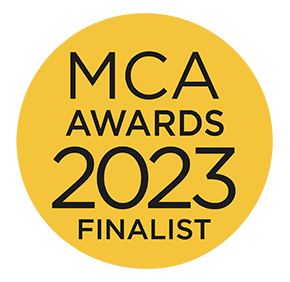Strategy
 NHS England (NHSE) faces huge challenges in the aftermath of the COVID-19 pandemic. The size and complexity of demand is increasing, and health inequality is rising, while it is coming under greater workforce and cost pressures.
NHS England (NHSE) faces huge challenges in the aftermath of the COVID-19 pandemic. The size and complexity of demand is increasing, and health inequality is rising, while it is coming under greater workforce and cost pressures.
Extended Reality (XR) approaches are being adopted rapidly across the healthcare sector, using both Virtual Reality (VR) and Augmented Reality (AR) technologies. NHSE wanted to understand how XR could help it solve key problems, such as making clinical services more efficient (to improve waiting list performance post-pandemic), delivering care in the optimal care setting (for patients and providers), improving workforce productivity and wellbeing, increasing preventative care (to reduce demand), and becoming financially sustainable (by stabilising costs).
PwC was commissioned by NHSE to research and report on the use of XR in healthcare, with specific objectives to understand the opportunities for XR use and recommend next steps toward developing an NHS XR strategy.
PwC analysed the current XR market, the emerging opportunities and the future trends. The project looked at portability, durability and costs surrounding hardware, and GDPR implications of data handling. PwC took learnings from other sectors, since a significant part of NHS spend is non-clinical (e.g., on buildings).
PwC closely examined how XR is currently used in the healthcare sector and NHS, by developing a methodology that combined user interviews and scorecard assessments, covering maturity, benefits, strategic alignment, costs and barriers. The firm then made recommendations on how the NHS could develop a strategy to adopt XR in a way that was safe, scalable and effective.
NHSE’s objectives required a combination of broad strategic perspective and sector knowledge, with specific understanding of an emerging technology and its applications. PwC therefore created a programme team that brought together its Strategy division’s healthcare expertise, and its Metaverse Technologies team’s in-depth knowledge of the technology and market.
PwC produced a 200-page report consisting of findings from focus groups, deep dives into four application areas, and analytical frameworks such as PESTEL and POPIT. It was the first to survey this landscape, and has heightened awareness throughout the NHS and beyond, with other public-sector organisations also drawing on its findings.
The work has resonated beyond the NHS, with other government bodies also assessing XR solutions. The National Institute for Health and Clinical Excellence (NICE) is exploring XR solutions in its early value assessment process. The Information Commissioner’s Office (ICO) recently published a report on emerging technology, which includes a chapter on the data protection and privacy considerations around XR. Meanwhile, the ICO’s Innovation Hub is exploring immersive-technology projects, to inform how it advises and guides its partner organisations.
PwC’s report has equipped NHSE with a solid foundation on which to build its national strategy for XR, while the 12 recommendations within the report are helping ensure that the adoption of immersive technology in public healthcare is evidence-based, benefits-led, and safe. As a result, the NHS is now poised to take advantage of immersive technologies, to provide better services to more people, cost-effectively and safely.
View the PwC profile in the MCA Members Directory.

